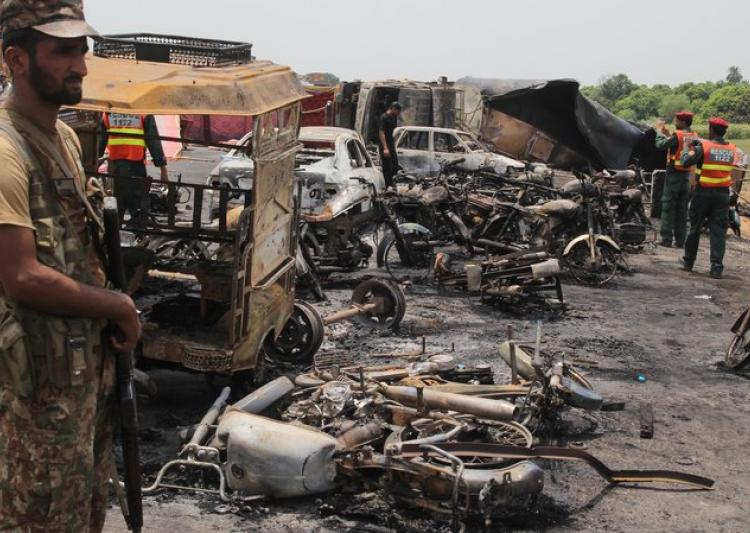Pakistan fuel tanker inferno
June 26, 2017 | Expert Insights

On 25 June 2017, an overturned oil tanker exploded in a huge fireball in Pakistan, killing at least 150 people, including many women and children. Witnesses described terrifying scenes at the site in the city of Ahmad PurSharqia, Punjab province.
Villagers had gathered, reportedly to collect fuel leaking from the crashed tanker, when it caught fire. Dozens are being treated in hospital.
The tanker was travelling from Karachi to Lahore was carrying 40,000 litres of fuel and overturned while trying to make a sharp turn on the main National Highway. Reportedly it exploded after fuel started leaking from its damaged container and caught fire.
It appears that the fire was sparked by a passer-by lighting a cigarette and the incident quickly morphed into a devastating tragedy.
Similar oil tanker explosion in India
On 22 March 2017, at least seven people were burnt alive when a tanker filled with highly inflammable material caught fire in India. The mishap took place near Chaori check post on the Mumbai-Ahmedbad Highway at around 3 pm. The tanker, said to be carrying petrol, went up in flames after overturning and exploding. Three persons travelling in the vehicle and four others walking on the road were burnt alive.
Analysis
Possible causes behind such fire accidents
Gas detonation- An explosion is a rapid increase in volume and release of energy in an extreme manner, usually with the generation of high temperatures and the release of gases.
Defective wiring- Most electrical fires are caused by faulty electrical outlets and old, outdated appliances. One should be aware of it.
Negligence- Most fires are caused by some sort of human error; therefore, negligence is easily implied. One could have better supervised the kitchen, the candles, the stove, fix those electric outlets, etc.
Assessment
Our assessment in this case, is that human negligence resulted in causing this tragedy that took away at least 150 lives. This also shows the need for implementation of greater safety measures while transporting inflammable material. Regulatory agencies across the world should also work towards making private contractors more accountable.








Comments